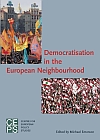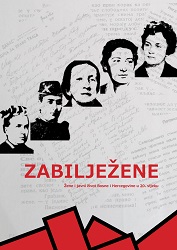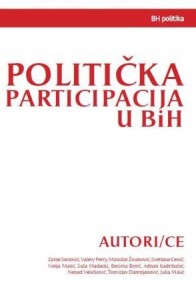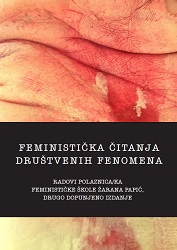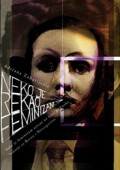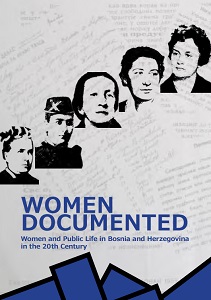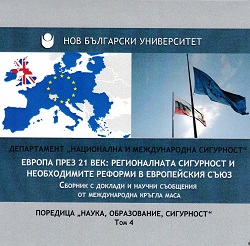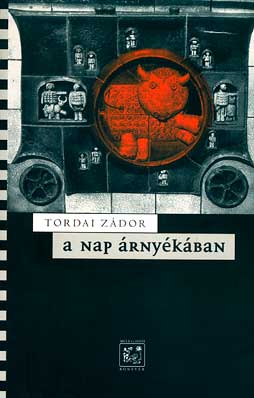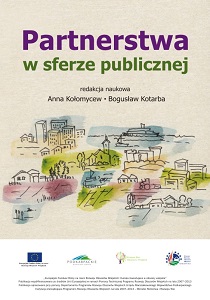Author(s): Author Not Specified / Language(s): Serbian
Publication Year: 0
U svojim Helsinškim odlukama donetim jula 1992. godine Organizacija za bezbednost i saradnju u Evropi (OEBS) ustanovila je Visokog komesara za nacionalne manjine kao "instrument za sprečavanje sukoba u najranijoj mogućoj fazi". Ovaj mandat je u velikoj meri nastao kao odgovor na situaciju u bivšoj Jugoslaviji koja bi se, prema nekim strahovanjima, mogla ponoviti bilo gde u Evropi, naročito u državama u procesu tranzicije ka demokratiji i koja je mogla da potkopa obećanja o miru i prosperitetu nagoveštena Pariskom poveljom za novu Evropu koju su šefovi država i vlada usvojili novembra 1990. godine. Gospodin Maks van der Štul (Max van der Stoel) preuzeo je dužnost prvog Visokog komesara OEBS za nacionalne manjine (VKNM) 1. januara 1993. godine. Na osnovu svog ogromnog ličnog iskustva bivšeg člana Parlamenta, ministra inostranih poslova Holandije, stalnog predstavnika pri Ujedinjenim nacijama i dugogodišnjeg zagovornika ljudskih prava, gospodin Van der Štul je usmerio svoju pažnju na mnoge sporove izme đu manjina i centralnih vlasti u Evropi koji su, po njegovom mišljenju, mogli da prerastu u ozbiljnije sukobe. Radeći nenametljivo, diplomatskim sredstvima, Visoki komesar je razvio svoju aktivnost u više od deset zemalja, uključujući Albaniju, Hrvatsku, Estoniju, Ma đarsku, Kazahstan, Kirgiziju, Latviju, Bivšu jugoslovensku republiku Makedoniju, Rumuniju, Slovačku i Ukrajinu. Njegovo delovanje je bilo prevashodno usredsre đeno na situacije vezane za pripadnike nacionalnih/etničkih grupa koji čine većinsko stanovništvo u jednoj, a manjinsko stanovništvo drugoj državi, i na taj način uključuju interese vlasti svake od tih država, predstavljaju imogući izvor me đudržavnih napetosti, pa čak i sukoba. Zaista, takve napetosti predodredile su veći deo evropske istorije. Baveći se suštinom napetosti vezanih za nacionalne manjine VKNM pristupa problemu kao nezavistan, objektivan i kooperativan činilac. Mada delatnost VKNM ne predstavlja nadzorni mehanizam, on koristi me đunarodne standarde koje su prihvatile sve države kao osnovni okvir analize i temelj svojih pojedinačnih preporuka. S tim u vezi, važno je podsetiti se obaveza koje su prihvatile sve države učesnice OEBS, a posebno Dokumenta iz Kopenhagena usvojenog na Konferenciji ljudske dimenzije OEBS 1990. godine koji, u delu IV, razra đuje detaljne standarde vezane za nacionalne manjine. Sve države OEBS tako đe su vezane obavezama Ujedinjenih nacija u domenu ljudskih prava uključuju i manjinska prava, a velika većina država OEBS dodatno je obavezana standardima Saveta Evrope. Tokom više od šest godina žive aktivnosti VKNM je uočio neka stalna pitanja i teme koja su postala predmet njegove pažnje u velikom broju država u kojima deluje. Me đu njima su pitanja obrazovanja manjina i upotrebe manjinskih jezika, posebno kao teme od velikog značaja za očuvanje i razvoj identiteta pripadnika nacionalnih manjina. Kako bi ostvario odgovarajuću i celovitu primenu manjinskih prava na području OEBS, VKNM je zatražio od Fondacije za me đuetničke odnose – nevladine organizacije koja je ustanovljena 1993. godine s ciljem da pruži posebnu pomoć VKNM – da okupi dve grupe me đunarodno priznatih nezavisnih stručnjaka radi izrade dve grupe preporuka: Haških preporuka o pravu nacionalnih manjina na obrazovanje iz 1996. godine i Preporuka iz Osla o jezi čkim pravima nacionalnih manjina iz 1998. godine. Obe grupe preporuka kasnije su poslužile kao okvir prilikom uobličavanja politike i zakonskih tekstova u mnogim zemljama. Tekstovi preporuka prevedeni su na nekoliko jezika i mogu se dobiti od Fondacije za me đuetničke odnose bez naknade. Oblici delotvornog učešća nacionalnih manjina u upravljanju državom predstavljaju treći čest problem koji se javljao u jednom broju slučajeva kojima se bavio VKNM. Kako bi stekao utisak o stavovima i iskustvima država učesnica OEBS o ovom problemu i omogućio državama da razmene svoja iskustva, VKNM i Ured za demokratske institucije i ljudska prava OEBS sazvali su konferenciju svih država OEBS i relevantnih me đunarodnih organizacija, u Lokarnu od 17-20. oktobra 1998. godine, pod nazivom "Upravljanje i učešće – objedinjavanje raznolikosti", čiji je domaćin bila Švajcarska konfederacija. Izjava predsedavajućeg, koja je objavljena na kraju konferencije, sažela je teme sastanka i naznačila kako je poželjno razviti "konkretne aktivnosti koje bi trebalo da uslede, uključujući dalju razradu različitih koncepata i mehanizama dobrog upravljanja sa delotvornim učešćem manjina, koje vodi ka objedinjavanju raznolikosti unutar države". U tom cilju, VKNM je pozvao Fondaciju za me đuetničke odnose da u saradnji s Institutom za ljudska prava i humanitarno pravo Raoul Wallenberg, okupi grupu me đunarodno priznatih, nezavisnih stručnjaka kako bi razradili preporuke i predočili alternative u skladu s odgovarajućim me đunarodnim standardima. Rezultat ove inicijative su Preporuke iz Lunda o delotvornom u češću nacionalnih manjina u javnom životu koje su dobile ime po švedskom gradu u kome je održan poslednji sastanak stručnjaka kada su uobličene Preporuke. Me đu njima su se nalazili pravni stručnjaci za odgovarajuću oblast me đunarodnog prava, politikolozi stručnjaci za pitanja ustavnog poretka i izborne sisteme i sociolozi koji se bave pitanjima manjina. Grupu stručnjaka, kojom je predsedavao profesor Gudmundur Alfredsson, direktor Raoul Wallenberg instituta, sačinjavali su: Profesor Gudmundur Alfredsson (Islan đanin), direktor, Raoul Wallenberg Institute of Human Rights and Humanitarian Law, Lund University, profesor Vernon Bogdanor (Britanac), Profesor javne uprave, Oxford University; profesor Vojin Dimitrijević (Jugosloven), direktor Beogradskog centra za ljudska prava, dr Asbjørn Eide (Norvežanin), viši saradnik, Norwegian Institute of Human Rights; Profesor Yash Ghai (Kenijac), Sir YK Pao, Profesor javnog prava, University of Hong Kong; Profesor Hurst Hannum (Amerikanac), Profesor me đunarodnog prava, Fletcher School of Law and Diplomacy, Tufts University; Peter Harris (Južna Afrika) Viši saradnik, International Institute for Democracy and Electoral Assistance; dr HansJoachim Heintze (Nemac), Director of the Institut für Friedenssicherungsrecht und Humanitäres Völkerrecht, Ruhr-Universität Bochum; profesor Ruth Lapidoth (Izraelac), Profesor me đunarodnog prava i rukovodilac Akademskog komiteta, Institute for Evropean Studies, The Hebrew University of Jerusalem; profesor Rein Müllerson (Estonac), šef katedre za me đunarodno pravo, King's College, University of London; dr Sarlotta Pufflerova (Slovakinja), Direktor, Foundation Citizen and Minority/Minority Rights Group; profesor Steven Ratner (Amerikanac), profesor me đunarodnog prava, University of Texas; dr Andrew Reynolds (Britanac), docent na katedri javne uprave, University of Notre Dame; Miquel Strubell (Španac i Britanac), direktor, Institute of Catalan Socio-Linguistics, Generalitat de Catalunya; profesor Markku Suksi (Finac), profesor javnog prava, Åbo Akademi University; profesor Danilo Türk (Slovenac), profesor me đunarodnog prava, Ljubljana University; dr Fernand de Varennes (Kana đanin), viši predavač pravnih nauka i direktor, Asia-Pacific Centre for Human Rights and the Prevention of Ethnic Conflict, Murdoch University; profesor Roman Wieruszewski (Poljak), direktor, Poznan Human Rights Centre, Polish Academy of Sciences. S obzirom da su postojeći standardi manjinskih prava sastavni deo ljudskih prava, početno polazište na konsultacijama stručnjaka bila je pretpostavka da države poštuju sve ostale obaveze iz oblasti ljudskih prava, posebno zabranu diskriminacije. Tako đe se pošlo od pretpostavke da je konačni cilj svih ljudskih prava pun i slobodan razvoj svake pojedinačne ljudske ličnosti pod jednakim uslovima. Sledstveno tome, podrazumeva se da bi gra đansko društvo trebalo da bude otvoreno i pokretljivo i na taj način obuhvatilo sve pojedince, uključujući i pripadnike nacionalnih manjina. Osim toga, kako je cilj dobrog i demokratskog upravljanja da služi potrebama i interesima celog stanovništva, pretpostavlja se da sve vlade nastoje da obezbede što više prilika za moguće učešće onih koji utiču javno na donošenje odluka. Svrha Preporuka iz Lunda, kao i prethodnih iz Haga i Osla, je da ohrabri države i da im pomogne prilikom usvajanja posebnih mera kako bi se ublažile sve napetosti koje se odnose na nacionalne manjine i da na taj način doprinesu osnovnom cilju VKNM na planu sprečavanju sukoba. Preporuke iz Lunda o delotvornom učešću nacionalnih manjina u javnom životu predstavljaju pokušaj da se relativno jednostavnim jezikom razjasni i nadgradi sadržaj manjinskih prava i ostalih standarda, opšteprimenjivih u situacijama kojima se bavi VKNM. Standardi su protumačeni tako kako bi osigurali celovitost svoje primene u otvorenim i demokratskim državama. Preporuke su podeljene u četiri podnaslova koji grupišu dvadeset četiri preporuke – opšta naela, učešće u donošenju odluka, samouprava i načini da se zajemči tako delotvorno učešće u javnom životu. Osnovna konceptualna podela u okviru Preporuka iz Lunda sledi dva pravca – učešće u upravljanju državom kao celinom i samopuravu u odre đenim lokalnim i unutrašnjim pitanjima. Moguća su i poznata različita rešenja. U nekoliko preporuka predložene su odre đene alternative. Sve preporuke bi trebalo tumačiti u skladu sa Opštim načelima iz prvog dela. Detaljnije objašnjenje svake preporuke nalazi se u Objašnjenjima u kojima se izričito ukazuje na odgovarajuće me đunarodne standarde.
More...
